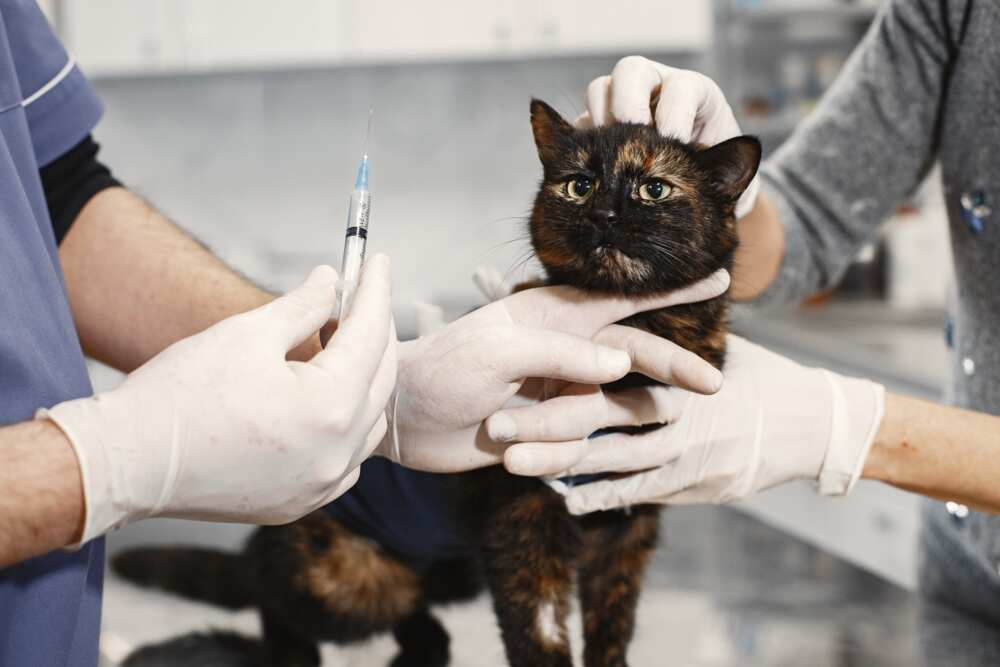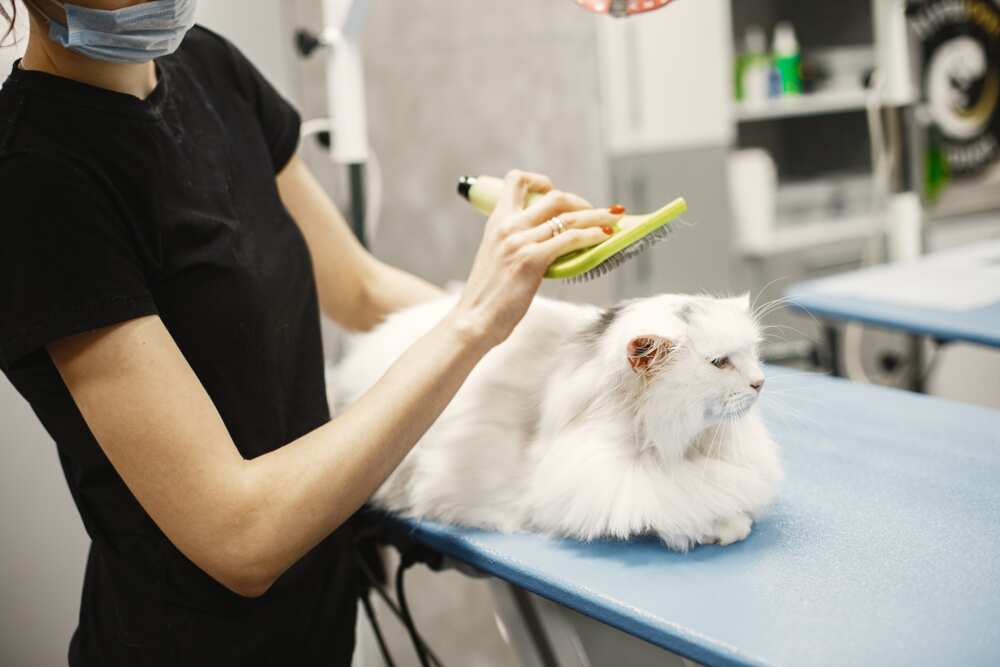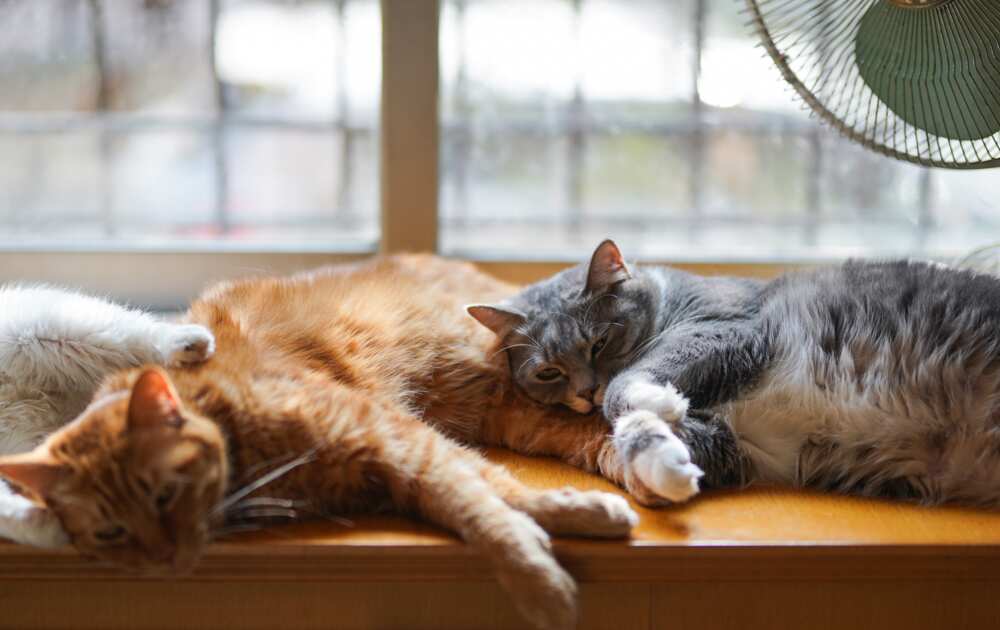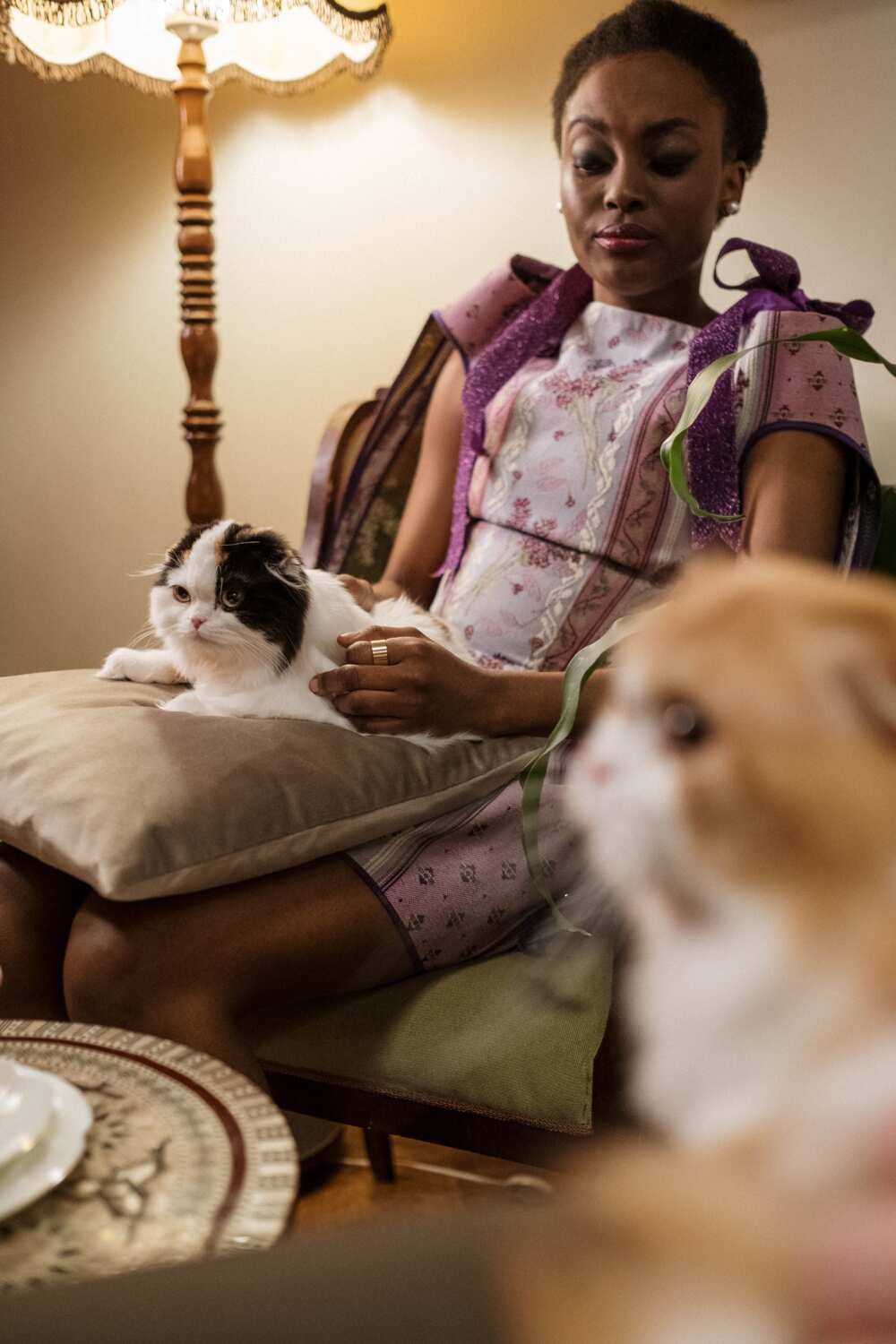How often do you take a cat to the vet? Answering popular questions
Cats are one of the common pets that people keep in their homes. Keeping them healthy is the primary concern for the owners. This is because their health largely depends on how they are taken care of. But how often do you take a cat to the vet?
PAY ATTENTION: Сheck out news that is picked exactly for YOU ➡️ find the “Recommended for you” block on the home page and enjoy!

Source: UGC
If you are a first-time cat owner, you might wonder how often to take them to the vet. Taking your kitty for a checkup is important preventive care that should be done regularly. More so, stoic kitties often don't show signs of illness until it's severe.
How often do you take a cat to the vet?
Like any other canine, kitties need regular health checkups. The question, however, becomes, is it annually, semiannually, or quarterly? Below are the number of checkups you should have for your kitty.
- It is best to take your kitty for a yearly thorough wellness checkup. It doesn't matter how old your cat is, or how healthy it might appear. The yearly checkups are particularly great if the cat is between 2-8 years old.
- As your kitty ages, the medical checkups should increase. This may happen twice a year to keep up with the health issues.
- The number of checkups will also depend on the cat's environment. If the cat lives in a harsh environment, it means more checkups.
- A kitty that lives a healthy lifestyle will not require more than a yearly checkup. However, a kitty with an unhealthy lifestyle will need more than a yearly checkup. This is because it might be prone to diseases. You should also look into improving your feline's way of life.
- Cats with pre-existing health conditions or who are on long-term medicatіon need to visit the vet regularly. Once a year will not be enough, and you should follow the vet's advice on this one.
- A visit to the vet is a must whenever they need vaccination and booster shots. This often depends on age, as kittens have a lot of vaccinations.
- Regular checkups will also be guided by medical needs. Every time the pussycat is unwell or shows signs of illness, it's necessary to go for a checkup.
PAY ATTENTION: Сheck out news that is picked exactly for YOU ➡️ find the “Recommended for you” block on the home page and enjoy!
Medical reasons why cats need to visit the vet

Source: UGC
Below are some signs you should look out for that will prompt a visit to the vet.
- At times, behavioral changes can warrant a checkup. If your feline suddenly becomes more aggressive or fearful, it's time to seek your vet's advice. This could be related to an underlying medical condition.
- Kitties lose weight often, but it's time for a checkup when you see drastic weight loss. If the kitty is not eating normally, it is also a cause for concern. This is because there could be an underlining problem that needs to be checked.
- When a kitty changes its hiding spot and starts looking for unusual places, there could be a bigger problem. It is important to go for a checkup to find out if there is an underlying issue and ensure better health for the kitty.
- You must go for a checkup when you spot your cat drinking water and still looking thirsty. Also, a cat that leaves giant clumps of urine in its litter box could be a sign of kidney disease or hyperthyroidism.
- Similarly to sudden weight loss, excessive weight is also a sign of trouble. Obesity brings many medical problems, such as diabetes, musculoskeletal problems, and even premature death. A checkup is warranted to get advice on maintaining a healthy weight.
- Litter box problems are a common reason to take your kitty for a checkup. These problems could be urinating outside the litter box or constipation. This clearly shows there is an underlying health problem with the cat.
- If your kitty is not breathing normally, that's a dangerous sign, and a checkup is necessary. This could be panting, open-mouth breathing, or a breathing rate of over 50 breaths per minute.
- If you see your feline friend experiencing severe bleeding, you need to take it in for a checkup ASAP. Severe bleeding could involve coughing up blood or having blood in their urine and stool. There could be internal bleeding or even serious issues like cancer.
- Decreased mobility is a condition seen not only in senior cats but also kittens. It is important to look out for any changes in your cat's activities. This may be slow movement, acting stiff, and being slow to jump. If you notice any of these signs, check in with your veterinarian.
- A kitty that cries out in pain means that it could be hurt or it's a medical emergency. It is, therefore, necessary to have it checked out.
- Vomiting 6-12 times in 24 hours indicates something is wrong. Get your kitty a medical checkup immediately to avoid dehydration which can be fatal.
- Anytime you see foaming excess at the mouth, it is not a good sign. Getting the kitty for a checkup is advisable to get to the problem.
When to take a kitten to the vet

Source: UGC
The first few months of a kitten's life are very crucial health-wise. Kittens need to see the veterinarian a lot more than adult cats. This is to ensure they're growing properly and that they get all the health care they need. The following are the times you need to take a kitten to the vet:
- Kittens visit the vet at 6-8 weeks old to receive their first vaccinations. They also get tested for FIV/FeLV and get dewormed. Vaccines can boost your kitty's immunity and help to prevent feline infectious diseases.
- Another checkup occurs at 9-12 weeks as kittens receive their next vaccinations. Early diagnosis and treatment of health problems are keys to preserving a cat's longevity.
- At 16 weeks, another visit to the vet is necessary so the kitten can receive a rabies vaccination.
- Kittens also visit the vet to be spayed or neutered before five months to prevent early pregnancy. However, many vets will neuter as early as eight weeks old.
- In case of a health emergency, make an appointment and have your kitty checked as soon as possible.
How often should cats go to the vet - an overview

Source: UGC
Regular kitty checkups are important as they give you a go-to person to consult when needed. Your vet will be familiar with your cat and can spot something amiss.
- A typical healthy adult cat should see the vet for a checkup at least once a year. However, the vet may suggest you visit every six months to be on the safe side or if the need arises.
- Indoor-only kitties below eight years old may get away with seeing the vet once a year. This is because life is in a clean and controlled environment, avoiding many issues.
- Outdoor cats may need to visit the vet more than once yearly, even if they have no health problems. This is because the environment is not controlled.
- A cat must visit the vet for vaccination boosters between 1-3 years. Booster vaccine shots are important for a cat, especially as it ages. This will help with disease prevention that arises due to environmental factors.
- An adult cat may also need to visit the vet for lab work every year once they reach five years. These lab tests will help to tackle any health issues before it's too late.
- A kitty with chronic diseases such as diabetes or kidney problems will need checkups more than once a year. Ensure to seek the vet's recommendation on how often to visit the clinic.
- Senior or older felines must see the vet at least every six months. Any kitty above seven years is considered a senior. Just like humans, they need more care as they age.
How often should I take my indoor cat to the vet?

Source: UGC
Indoor cats are known to be healthier than outdoor cats. They can live up to 10 years longer than outdoor kitties. While your indoor cat won't encounter dangers found outside, it must see the vet regularly.
- On average, indoors should go for regular checkups at least once a year.
- This, however, means that when they are young, they regularly visit to ensure they get the vaccinations they need.
- Regular visits will also enable the vet to detect and find solutions to any health issues that may be developing.
- The indoor kitty must visit the vet for treatment in a medical emergency.
One of the most popular questions new cat parents have is "How often do you take a cat to the vet?". Going for checkups is one of the most important things you can provide for your cat. It is not something that should only be reserved for times of sickness or emergency concern. This is because these visits will help to identify and prevent any serious issues before they worsen.
READ ALSO: 15 benefits of bitter leaf and scent leaf: are they natural remedies?
Legit.ng published an article about bitter and scent leaf benefits. Bitter leaf and scent leaf are herbs traditionally used for medicinal use. They contain Calcium, Carbon, Vitamin A, Potassium, and Iron, which are important to human health.
Numerous traditional herbs have been used for ages and whose benefits are unmatched. They have been used to treat ailments that sometimes have no cure in the modern medical world. They are also used to prevent the occurrence of certain medical conditions. Most people use them at home as natural remedies for various issues.
Source: Legit.ng






